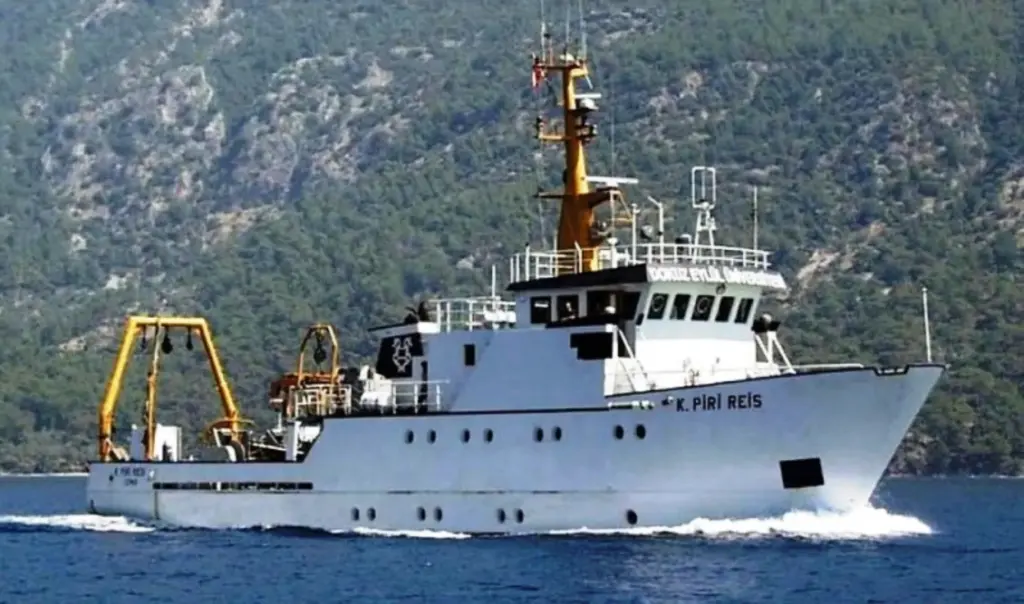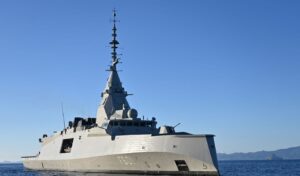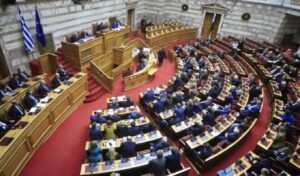From today until October 14, the Turkish oceanographic vessel Piri Reis will conduct research in the Aegean Sea, heading west of Chios and Lesbos, according to a Navtex issued by the Izmir port authority in Turkey. Despite the fact that the Lemnos station immediately issued a counter-Navtex, considering this an illegal Turkish action, the Piri Reis aims to achieve its main purpose: to reawaken past Greek-Turkish tensions.
Political scientist and international relations expert Theodoros Tsikas argues on parapolitika.gr that the Piri Reis, as a scientific vessel, can conduct research at various points in international waters of the Aegean, but on the surface “it would be problematic if these investigations reached or touched the seabed. And why would it be problematic if they touched the seabed? Because the seabed contains what is called the continental shelf. The continental shelf is seabed. So if it touched the seabed, it could be considered that by touching the seabed, it somehow registers for the future, when the time comes for negotiations or appeals to the International Court of Justice in The Hague, that it registers some kind of mortgage. That, you know, we went there and weren’t prevented, so it means that over there is a seabed area over which we have economic exploitation rights. If what the Navtex says, which is very detailed, is observed, there will be no problem for Greece. Of course, Greece should monitor it, there’s no doubt about that. Turkey obviously wants to show that in international waters there are areas where it actually has economic exploitation rights”.
Theodoros Tsikas on Piri Reis to parapolitika.gr: Ankara’s objectives behind the “scientific research”
According to Mr. Tsikas, Turkey seeks through its presence in the broader Aegean region to show that the area is not exclusively under Greek jurisdiction but that it also has rights there. However, as he argues, Turkey will not try to create tension because, as he tells parapolitika.gr “Turkey is trying to sell the opposite narrative. That it is a country which is a stability factor in the broader region. That it is closing the fronts it had with various closer and more distant neighbors in the broader region. And more generally, it is a country that can undertake mediation initiatives”.
“Tool of the Blue Homeland” is how Georgios Ayfantis characterizes the Piri Reis
Ambassador emeritus Georgios Ayfantis, who also spoke to parapolitika.gr, is equally reassuring about the role the oceanographic Piri Reis is coming to play. As he argues “the irregular thing is that it requests permission from the Izmir port authority and not from the competent port authority, which is the competent port authority of Lemnos, because it considers, based on the Blue Homeland doctrine, that Greek islands have no jurisdiction beyond the six nautical miles of territorial waters. The Piri Reis is a tool for implementing the Blue Homeland doctrine. It insists on claiming control of the Aegean up to the middle, up to the 25th meridian. It’s a matter of time before other demands are made”.
The Greek response: EEZ and 12 nautical miles
According to Mr. Ayfantis, the stance Greece should maintain in the face of Turkish provocations is the unilateral declaration of an Exclusive Economic Zone in the Aegean. “We tell the other side that we believe this is our Exclusive Economic Zone, and if Turkey or anyone else thinks we’re encroaching on their territory, they can appeal to the International Court of Justice in The Hague, to the Hamburg Court, and seek a judicial settlement of the dispute, which is again a goal of Greek policy. But this doesn’t happen with pleas, it doesn’t happen with wishful thinking, it happens with actions on the ground. I think the most peaceful and self-evident action is for our country to declare an Exclusive Economic Zone. Another thing our country could do is proceed with the declaration of twelve nautical miles along the continental coasts of the Aegean, mainly around Crete, taking advantage of Turkey’s current inability to carry out the Casus Belli threat, that is, to implement the threat of war. There are many possibilities to react. The question is whether those governing in Athens want to react” argues former diplomat Georgios Ayfantis.




